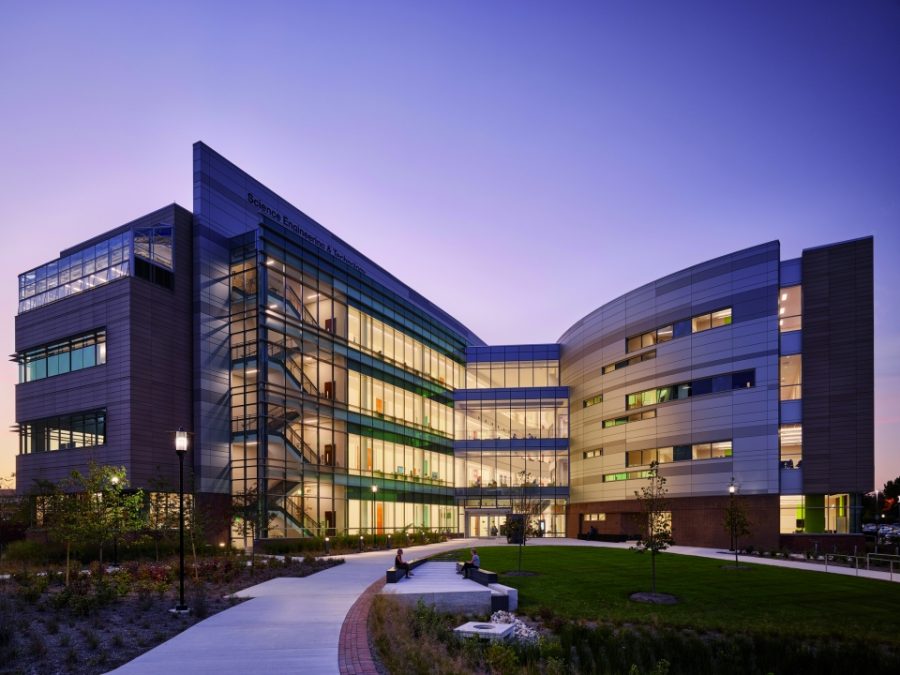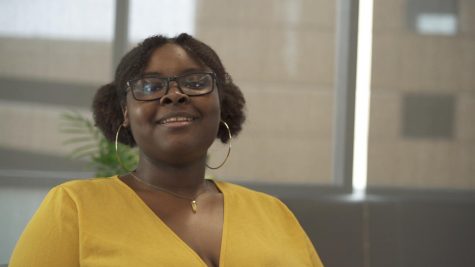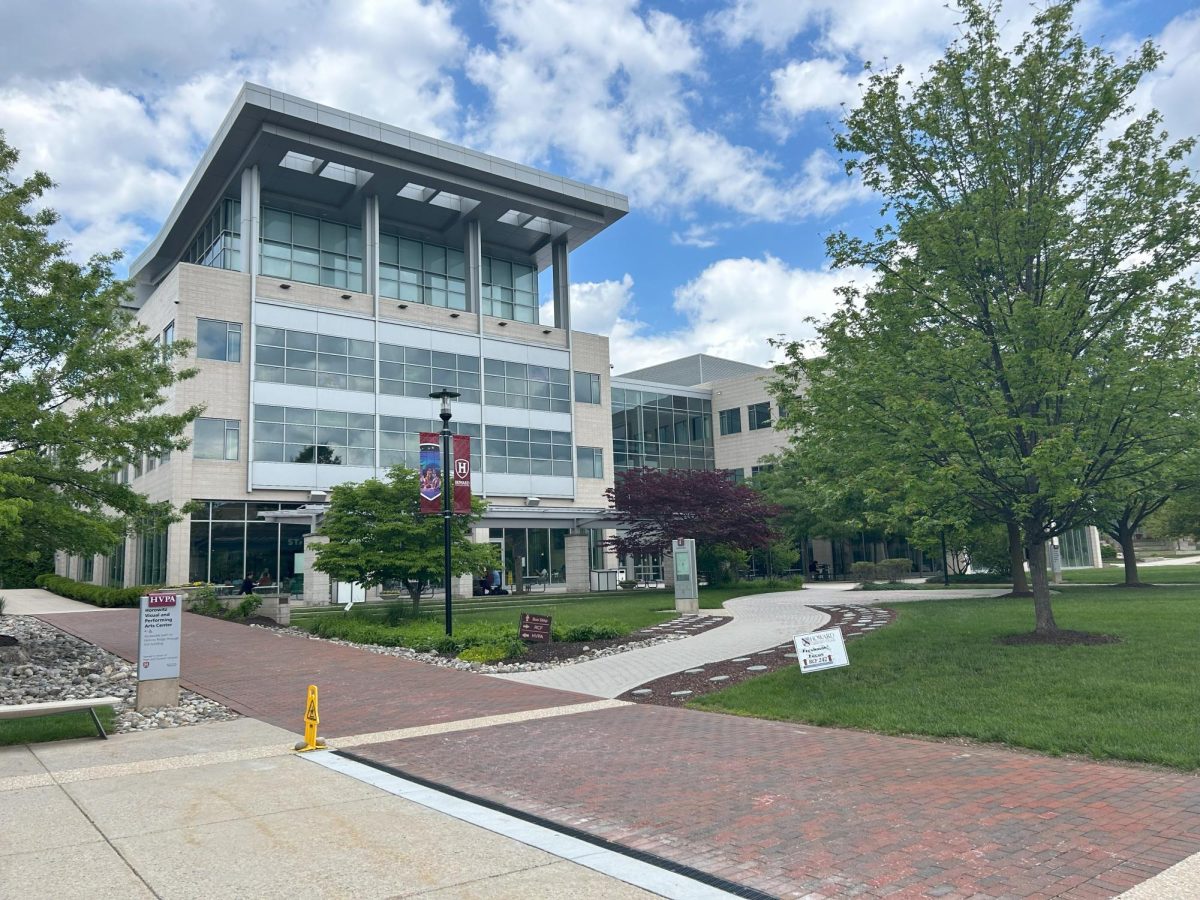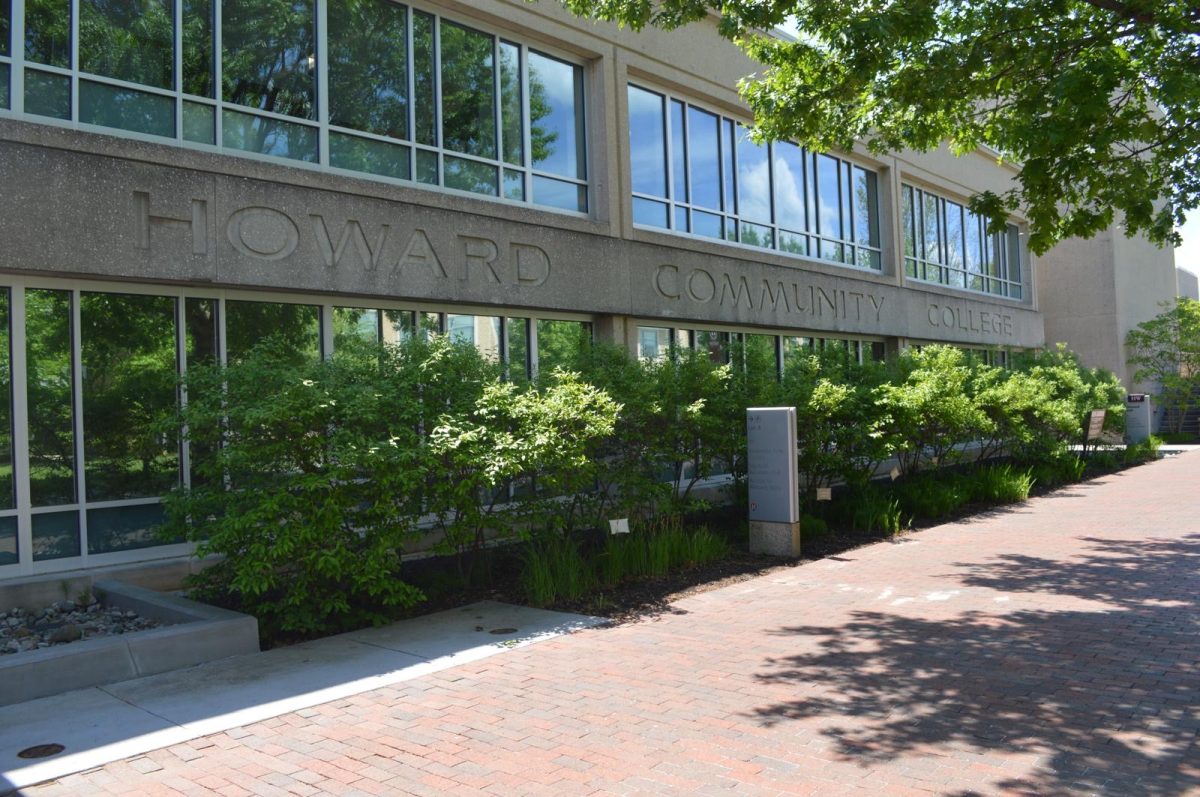Howard Community College Reveals Recovery and Reopening Plan
HCC PR & Marketing
The JumpStart program allows current high school students to earn college credits from HCC.
July 8, 2020
Howard Community College (HCC) joins other colleges in finally revealing what their plan for the Fall 2020 Semester is. Current conditions and procedures, in addition to the monumental events that everyone is facing continuously, made the college’s plan appear as uncertain for some time. COVID-19 struck, quarantine drags on, protests have grown rapidly, and mental stability is slowly ebbing away.
However, despite these circumstances, everyone is doing an amazing job with trying to stay sane, going about their daily routines, and persevering in summer classes. Friends, family, college resources, hobbies, and streaming sites are helping people stay happy and healthy during these difficult times. However, the future of everyone’s normal lives is changing.
Howard Community College (HCC) has informed students of their recovery plan for the Fall 2020 Semester, but it falls short of what many people were hoping for. However, HCC President Kathleen Hetherington and a cross-functional committee, composed of HCC faculty members, prioritized the health and safety of the students, faculty, and staff when deciding on how the college will operate in the fall.
The HCC Recovery and Reopening Plan describes how each reopening phase will progress and what steps will be taken should conditions worsen. Classes will continue as hybrid classes, scheduled remote classes, and flexible online classes. Hybrid classes will be mainly for courses that require a hand-on component, such as science classes with a lab, and will be both online and in-person. Scheduled remote classes will meet at specific times online through Zoom and will abide by the times on course schedules. Flexible online classes will allow students to study on their own, access recorded lectures, and learn through Zoom.
According to President Hetherington’s updates, Howard Community College’s Recovery and Reopening Plan was created with Governor Hogan’s Executive Orders in mind. The plan is also consistent with the “guidelines given by the Centers for Disease Control and Prevention (CDC), White House, Howard County’s reopening plan, and the local health department’s official directives,” as stated in the HCC Recovery and Reopening Plan document.
This means that the college is following reopening phases approved by the governor, with the goal of phases becoming less and less restrictive, but that will only occur if rules are followed and conditions get better. It is expected that the document will be evaluated at each phase depending on the current conditions.
When the college allows people to come on campus, rules will have to be followed and enforced. If in-person courses occur, students and faculty will be expected to wear face masks, keep a six-feet separation, and practice good hygiene in order to maintain a safe and healthy environment for everyone.
While this plan is effective, it is concerning to many how students and faculty will handle this “new normal”.
Jessie Gordon, a General Studies and Chemistry major at HCC, explained that she felt apprehensive about the college’s plan. She understands that the president and faculty are focusing on the safety and well-being of everyone, but she still finds the new plan extremely frustrating. Gordon believes that “it seems a little risky with how small the classrooms are and how inconsistent the number of students in each class is for us to go back to in-person classes…but there are definitely some classes where I’d prefer to be in-person.” She worries that online courses will be difficult, especially since students will have to adapt to new environments and techniques of learning.
Gordon often struggles to concentrate and she states that “from a learning standpoint, online classes are hard.” However, Gordon understands that if the safety regulations that HCC has set are disregarded, conditions might get worse. She is more worried about “people being dumb with the safety regulations…I mean, the HCC staff is super responsible and cautious, but that won’t stop the people that just don’t want to follow the rules.” As much as she wants her college education to go back to normal, Gordon knows that she will have to be patient in order for that to happen.
Carina Thornton, a Nursing major at HCC, shares similar thoughts with Gordon. Thornton is absolutely excited that HCC is finally reopening, but she is disappointed that she will not be able to take in-person courses. Like Gordon, Thornton has a concentration problem. At home, it is hard for her to focus on a task because she is not used to going to school while being fully immersed in her home atmosphere. Naturally, Thornton is “a little concerned with the plan.” She understands the plan and why the college chose to create it, but she is worried about how students will adapt to new procedures.
Although the plan has been well thought through, there are several issues it presents. Students like Gordon and Thornton have issues focusing on courses at home, and Angel Belleveau-Butler, an English major at HCC, explained how she is frustrated with not having access to the resources that the college provides. Belleveau-Butler says “it’s definitely way harder not having access to the library in order to borrow books and not having a super quiet place to read or do homework.” She also expressed how stressful it is that she “will not be able to walk in or call some of the offices such as financial aid,” especially when she needs urgent information on her courses or clarification on some confusing information. Belleveau-Butler feels that the potential reopening of the college is a bad move and believes that COVID-19 might last longer than anyone predicted.
Another worry is how the different course types will interact. For example, if a student has a hybrid class, a scheduled remote class, and a flexible class in their schedule, it might be difficult to navigate. Stress might increase for the student and they might miss some classes due to scheduling issues.
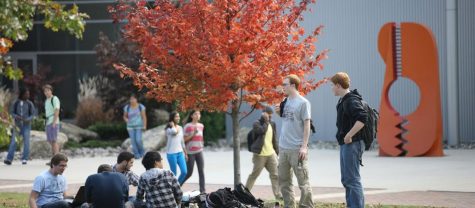
It is a possibility that the faculty took this mental health factor into consideration, but it is evident that they did their best to put everyone’s well-being first. Of course, there is no such thing as a perfect plan, but the college did a good job of creating one. However, it is still worrying how everyone will adapt to this new format of college courses, students and faculty alike. A member of the reopening cross-functional committee was unavailable for comments.
Compared to other colleges in the area, HCC’s reopening plan differs from what these colleges are considering and planning for the Fall 2020 Semester.
The University of Maryland, Baltimore County (UMBC) is “beginning to transition from fully remote operations toward limited on-campus activity,” according to UMBC’s Return Roadmap & Fall 2020 Planning document. The faculty at UMBC are planning thoughtfully and taking necessary precautions with this transition. UMBC’s plan is created around the basis of COVID-19 procedures, phase regulations, and public health announcements. However, their plan depends on key assumptions based on COVID-19 cases and progress currently and what they hope for in the Fall.
The University of Maryland (UMD) is planning with a goal for kickstarting the Fall 2020 Semester on Aug. 31. According to an interview with WTOP News’s Nick Iannelli, UMD President Wallace Loh stated that “risk management of COVID-19 is an evolving process.” This means that the plan UMD has created is extremely flexible with the progress of the pandemic. If a vaccine becomes available, then UMD adjusts its plan for the Fall. Also, students and faculty are still expected to follow public health regulations on campus such as wearing face masks, maintaining six-feet, and checking their temperature every day. UMD is planning to offer testing to all students and faculty on campus as well.
It is interesting to see how some colleges, compared to HCC, are planning to go back to campus despite the looming fear of the pandemic. HCC’s plan is good, but it can be seen that UMBC’s and UMD’s plans are equally good. Not every college can follow the same plan because universities like UMBC and UMD offer student housing while community colleges like HCC do not. However, it can be seen that each plan is somewhat flexible with the conditions that people are facing now.
These might be the plans that colleges are following now, but there is no telling what can happen now compared to what can happen at the start of the Fall 2020 Semester. COVID-19 conditions might get better or worse during these few months, but it all depends on how seriously people will take these risks. Face masks should be worn, six-feet between others should be kept, safety precautions should be followed, and hygiene should be maintained in a clean environment. A vaccine is going to take time to develop, so in the meantime, people need to be patient and follow the rules because progress only happens when everyone works together.
Students and faculty might be hoping for an alternative plan that involves campus interaction, but HCC believes that this plan is the best course of action. Patience is key during these difficult times and people cannot expect HCC to put their lives at risk because they want to go back to campus. Hopefully, pandemic conditions will get better, but it will take some time. So, follow the rules and regulations that are set and everyone will be back on campus in no time.


